Doctors wearing white hazmat suits drifted in and out of the hospital room like astronauts in a slow-moving outer space nightmare. Their faces and expressions were hidden behind helmets that looked like fishbowls, and their voices were inaudible mumbles. Flipping through medical charts, the doctors kept a far distance from the patient lying in the bed before them, a man with a debilitating case of COVID-19.
Salvador Cariaga, a Fort Worth missionary and homeless advocate, was their patient.
“It was very strange,” Cariaga told me as he recalled the scene. “Like a Twilight Zone.”
Cariaga was receiving morphine, steroids, oxygen, Remdisivir, and blood plasma as part of his treatment for COVID-19, but his condition appeared to be getting worse. During the worst point of his illness, he lacked enough energy and concentration to fully comprehend what was happening and was suspended in a la-la land, he said. He found himself staring aimlessly at the four walls and the ceiling of his hospital room in a state of utter confusion brought on by the virus and the medications.
“When you can’t breathe, it affects your mind,” Cariaga explained. “I’m a very active person, in mind and body, and when I had COVID, I would be sitting down and just staring at the wall. And I didn’t know why I was staring at the wall.”
Other times, he stared at the ceiling, knowing there were things he had to get done, but he couldn’t recall what they were.
“You’re in limbo,” Cariaga said. “You can hardly breathe, and that affects your morale. I’m a very optimistic person, but in that state, it affects you.”
Complacency set in for him followed by thoughts of whether he would beat the virus.
“That’s where faith is really important,” Cariaga said. “When you are close to death, nothing matters. I was asking myself, ‘Is my life right with God? Am I ready for this?’ ”
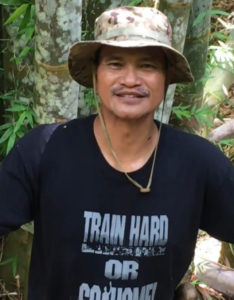
Photo courtesy of Salvador Cariaga.
Days before he landed in a hospital with double pneumonia as a symptom of the virus, Cariaga watched on a video call as his 79-year-old mother died from the virus. She was under a quarantine in the Philippines, and no one was allowed into the hospital to visit her, hold her hand, or say their final goodbyes as COVID-19 ended her life.
After watching what his mother went through, Cariaga thought he was next, he said. As the virus attacked him, he struggled to breathe, even with oxygen, he said.
He also experienced being completely isolated in the hospital while visitors were prohibited. At that time, he realized another vicious cruelty of COVID-19.
“The world is already a lonely place,” Cariaga said. “COVID-19 took that to an extreme.”
Extremes seem to categorize the past year. COVID-19 caused us all to endure empty stores, barren roads, shuttered businesses, and closed schools. We lost family members, friends, and acquaintances to the virus.
Although the figures have improved, the danger from COVID-19 is not over, health experts have said. As of last week, Texas has lost a total of 49,674 people to the virus. That figure includes 3,371 people in Tarrant County. Nationally, 566,000 deaths are attributed to COVID-19.
Instead of closures and soaring cases, today’s focus is set on vaccines. Some are afraid that could cause more people to abandon safety measures like wearing masks and social distancing.
Cariaga and his friend, preacher Jim Michell, who also nearly died from the virus, have not forgotten what life was like at the height of the outbreak in Tarrant County.
Cariaga splits his time between the United States and his native homeland, the Philippines. He spends his days and nights in the homeless camps along East Lancaster Avenue, where he works to provide hope and basic needs for some of the most downtrodden, unhealthy, and disadvantaged people in the city. Most homeless people do not wear masks, Cariaga said.
But it was not the homeless population that gave him COVID-19. He caught the virus at a church, at a time when he and Michell were the only two people in the building.
Before it was over, both of them were barely breathing and wondering whether they would survive.
*****
Long before his battle with COVID-19, Cariaga, 57, began filming sermons for Michell, a preacher at Woodlands Park Church of Christ in Mansfield. One day in early October 2020, their video session began as it usually does, with Michell preaching his heart into the camera and Cariaga manning the recording equipment. Michell delivered his message while sitting in front of a white lattice-work screen and lush green plants at the church, a setting that gave the feeling of being in a peaceful garden. Little did they know, hell was going to break loose.
“We were the only two people in the building,” recalled Michell, a pulpit minister with more than 40 years of experience preaching in Texas and California churches. Due to a vision impairment, Michell gave himself the moniker “the blind preacher.”
Cariaga said he was “careless” helping Michell record his service. Michell is “very careful,” Cariaga said. “He wouldn’t even let me in his house.”
Because of the pandemic, Michell, 71, and his wife, Louise Michell, rarely left their home, Michell told me. When they had to go out, they were diligent about social distancing, wearing masks, using hand sanitizer, and washing their hands.
Despite their precautions, COVID-19 launched a stealth attack in their lives. Louise apparently caught the virus during a routine doctor visit. Days after the appointment, she began feeling ill and went to get a COVID test, Michell said.
It was positive. By the time the result came back, Cariaga and Michell were already becoming ill.
Louise was lucky. Her illness was not severe. But Cariaga and Michell caught the worst of everything COVID offers.
“His wife got it first when she went to the doctor,” Cariaga explained. “When [Michell] found out about it, he got himself tested immediately and informed me. By the time he found out that he had COVID, which took a week, he and I were already showing symptoms.”
Cariaga and Michell both endured a brutal battle with the virus that began mild but almost turned lethal.
By Oct. 21, Michell was ill in the hospital, and Cariaga’s symptoms seemed to be improving. His cough, fever, and headaches were gone. At the time, it seemed as though he would beat the virus without a hospital stay.
Initially, Michell’s symptoms were so mild that he thought it was allergies.
“I had a runny nose and thought it was hay fever,” Michell said. “I was helping to rake up some leaves at my son’s house over the weekend and thought it was from that.”
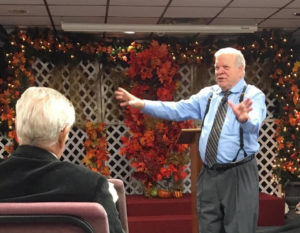
Photo courtesy of Salvador Cariaga.
His symptoms progressed to vomiting and diarrhea that were so severe he went to a local hospital, where he was diagnosed with double pneumonia — a term that means pneumonia is present in both lungs.
“I had no idea I was in such critical condition,” Michell said. “They complained to me about my breathing and oxygen and that I couldn’t take the oxygen hose out of my nose. They also had a little device on my thumb to measure the oxygen in my body.”
When he spoke to his family members on the phone, they were crying, Michell said. A doctor told them he believed Michell’s chances for survival were slim.
“They had already told my family they didn’t think I was going to make it, and they wanted to know what to do with the body,” Michell said.
At one point, Michell alleges that he overheard one of his doctors telling another doctor to put Michell on a ventilator.
“I woke up at 4 a.m. in ICU, and one of the doctors said, ‘Well, go ahead and hook him up,’ ” Michell recalled. “Another doctor said, ‘Don’t you think we ought to give him a chance to fight?’ ”
The two doctors debated what should be done, but Michell prevailed in his effort to stay off the ventilator.
“Do you want to live?” one of the doctors asked him. Michell said he told her, “I would prefer to.”
While in the hospital, he drew on his faith, remembering the verse Philippians 4:6-7: Be anxious for nothing, but in everything by prayer and supplication, with thanksgiving, let your requests be made known to God; and the peace of God, which surpasses all understanding, will guard your hearts and minds through Christ Jesus.
Shortly after the conversation about the ventilator, Michell was given a shot to sedate him, he said. He alleges that he woke up hours later with his hands and feet bound to keep him from moving.
“It was like some sort of straitjacket,” he said. “It was very confining.”
He demanded that the doctors remove the constraints and not place him on a ventilator, Michell said.
“Nobody would have known until it was too late,” he said. “Once they put you on a respirator, your chances of making it aren’t good. It’s basically a death sentence, and I didn’t get that death sentence.”
Similar to Michell, Cariaga’s symptoms began with fatigue and a runny nose. Then came difficulty in breathing, headaches, and body aches, he said.
“Everything started tasting really bitter and different, and I realized, ‘This is it,’ ” he said.
He went to two different places for a COVID-19 test, and both confirmed that he was positive.
Cariaga’s first week in quarantine saw “mild to wild” symptoms that at one point seemed to be improving, he said. He tried sleeping more and boosting his intake of water and fresh fruit juices, hoping he could beat the virus. For a few days, it seemed like he was getting better. Then his condition got worse, and overwhelming fatigue set in.
When breathing became difficult, Cariaga decided to drive himself three hours to Oklahoma City, where his daughter-in-law, Sarah, works as a nurse at Integris Hospital.
“As soon as I got there, they took me to the hospital,” Cariaga said.
While he was there, two friends showed him an astounding display of compassion and friendship. Days before he left for Oklahoma City, Cariaga talked with Matt Kirby, another volunteer for the homeless.
Kirby said he remembered Cariaga saying he wasn’t afraid of the illness, even though he was already beginning to lose his sense of taste and smell.
“I texted him and said, ‘I love you brother,’ ” Kirby said in a phone interview. “I knew he was sick, and I didn’t want to bother him. The next thing I knew is that after much coaxing and pushing, he went to Oklahoma.”
While Cariaga was in the hospital, Kirby and another friend had already planned to drive to Oklahoma City on business, but that wasn’t enough for Kirby to risk driving in the treacherous ice storm that was forecasted for the area.
“I need a better reason to go,” Kirby said he told him.
They both found one: They would make the trip and also stop by the hospital parking lot to pray for Cariaga.
As snow and ice rained down around them, they sat outside in the car and pleaded with God to save his life.
“It was a very emotional and spiritual time,” Kirby said.
Cariaga was so out of it, he had no idea they were outside at the time, he said.
The two friends later sent him a blurry cell phone photo of the parking lot, with heavy snow and ice falling around them.
“I am eternally grateful for that,” Cariaga said. “This was during an ice storm. That’s friendship.”
Better still, the next morning his symptoms began improving, Cariaga said, but it would be weeks before Michell and Cariaga returned to feeling even slightly “normal.”
*****
The rehab Cariaga and Michele endured lasted weeks. Both were released home with oxygen tanks and had to do physical therapy to regain their strength.
An in-home physical therapist came to Michell’s home and put him through exercises and breathing exercises. He also went on long walks to help build his endurance.
“The next morning, I said I haven’t hurt this much since I played high school football,” Michell said.
While in the hospital and for weeks after, Cariaga experienced what he called a “COVID cloud,” a time of slow thinking and slow moving that sapped every bit of his energy and motivation. Sitting up, talking, and walking to the bathroom were all exhausting. His speech was slow and difficult. The first time he returned to church, Cariaga was out of breath after singing one song, he said. He couldn’t talk on the phone much because it made him cough.
All of the cards, messages, and emails from friends and concerned onlookers kept him going, Cariaga said, adding that he was too weak at the time to answer most of them.
At the height of the surge of COVID cases in Tarrant County, Cariaga’s Facebook page read like a memorial for victims. There was a wife who cared for her husband while he was sick with the virus and contracted it herself. Her husband’s funeral was scheduled so she could attend after her symptoms improved, but she also died before the funeral could be held. A friend who wrote encouraging text messages to Cariaga while he was in the hospital contracted the virus and died.
Both Cariaga and Michell have tried to reconcile how they survived and others did not.
Overall, the care they received was excellent and saved their lives, Cariaga and Michell told me, but their good fortune caused them to think of other COVID victims who were not as lucky.
What about people who weren’t given the chance to fight? Michell said he has wondered. What about people who didn’t receive the proper care and were warehoused or otherwise left to die?
Cariaga has coped with his ordeal by reaching out to others who have fallen ill to the virus or who have lost loved ones.
“I am sharing this for those who are going through COVID-19 like I did,” he wrote on Facebook. “I understand, am praying for you and hope you recover like I did. Feel free to message me or reach out if I could be of any help.”
As a volunteer and missionary for the homeless, Cariaga works with many “broken” people, he said. That could just as easily apply to how the pandemic has impacted everyone in some way.
“Working with the homeless is interesting work because the homeless are a community of people with mental illnesses and broken relationships,” he said. “People who work with the homeless are not perfect, either. We’re also broken. Still, we seldom admit it.”



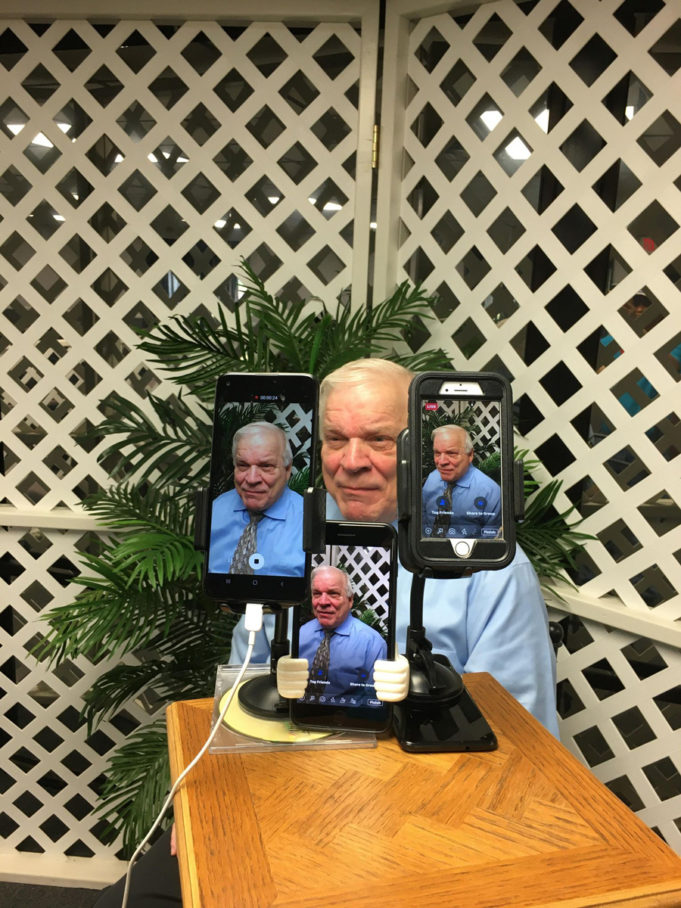
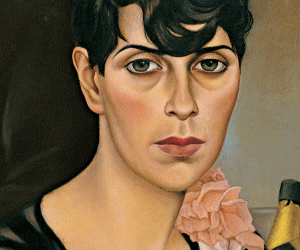
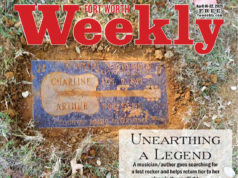







This is a great conversation with these two survivors of the horrible disease. Thankful they are here today to tell others how serious a disease this is.